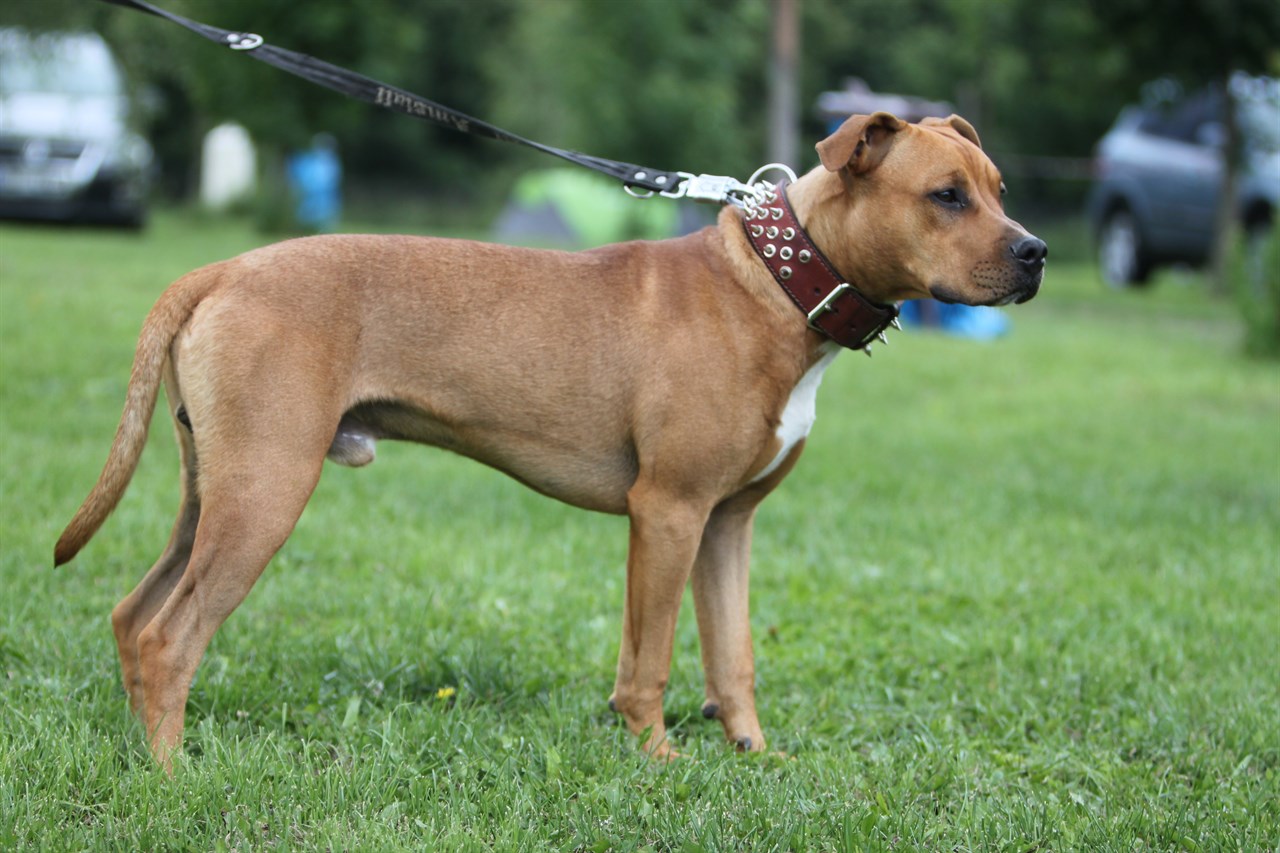Common Health Issues of the American Pit Bull Terrier

The American Pit Bull Terrier (APBT) is generally a healthy and robust breed, but like all dogs, they can be prone to certain health issues. Responsible breeding practises and proactive healthcare can help manage and prevent these common health concerns.
Hip Dysplasia
Hip dysplasia is a hereditary condition where the hip joint doesn't develop properly. Regular veterinary check-ups and maintaining a healthy weight can help manage this condition.
Allergies
Pit Bulls may be prone to allergies, including food allergies and environmental allergies. Common signs include itching, redness, and ear infections. Identifying and avoiding allergens is crucial for managing allergies.
Skin Issues
Their short coat makes Pit Bulls susceptible to skin issues such as rashes and irritations. Regular grooming, including checking for parasites and using appropriate skincare products, helps maintain healthy skin.
Heart Disease
Certain heart conditions, such as congenital heart disease or valvular disease, may affect Pit Bulls. Regular veterinary check-ups, a healthy diet, and monitoring for signs of heart issues are essential.
Cataracts
Pit Bulls may be prone to developing cataracts, a condition that affects the clarity of the lens in the eye. Regular eye check-ups can help detect and manage cataracts early.
Patellar Luxation
Patellar luxation, where the kneecap dislocates, can occur in Pit Bulls. Regular exercise and maintaining a healthy weight contribute to joint health.
Demodex Mange
Pit Bulls may be susceptible to demodex mange, a skin condition caused by mites. Proper grooming and veterinary care can help manage this condition.
Thyroid Issues
Hypothyroidism, a condition where the thyroid gland doesn't produce enough hormones, can affect Pit Bulls. Regular blood tests can help diagnose and manage thyroid issues.
Are Pit Bulls Prone to Separation Anxiety?
Pit Bulls, like many breeds, can be prone to separation anxiety. They are social dogs that form strong bonds with their families. Signs of separation anxiety may include destructive behaviour, excessive barking, and house soiling. Proper training, gradual desensitisation to alone time, and providing engaging toys can help manage separation anxiety in Pit Bulls.
Dental Issues
Dental problems, including periodontal disease, can affect Pit Bulls. Regular dental care, including tooth brushing and dental chews, is crucial for maintaining good oral health.
Conclusion
While the American Pit Bull Terrier is generally a healthy breed, responsible ownership involves proactive healthcare. Regular veterinary check-ups, a balanced diet, and attention to their specific needs can contribute to a long and healthy life for Pit Bulls.
American Pit Bull Terrier puppies for sale
- Find American Pit Bull Terrier puppies for sale in ACT
- Find American Pit Bull Terrier puppies for sale in NSW
- Find American Pit Bull Terrier puppies for sale in NT
- Find American Pit Bull Terrier puppies for sale in QLD
- Find American Pit Bull Terrier puppies for sale in SA
- Find American Pit Bull Terrier puppies for sale in TAS
- Find American Pit Bull Terrier puppies for sale in VIC
- Find American Pit Bull Terrier puppies for sale in WA